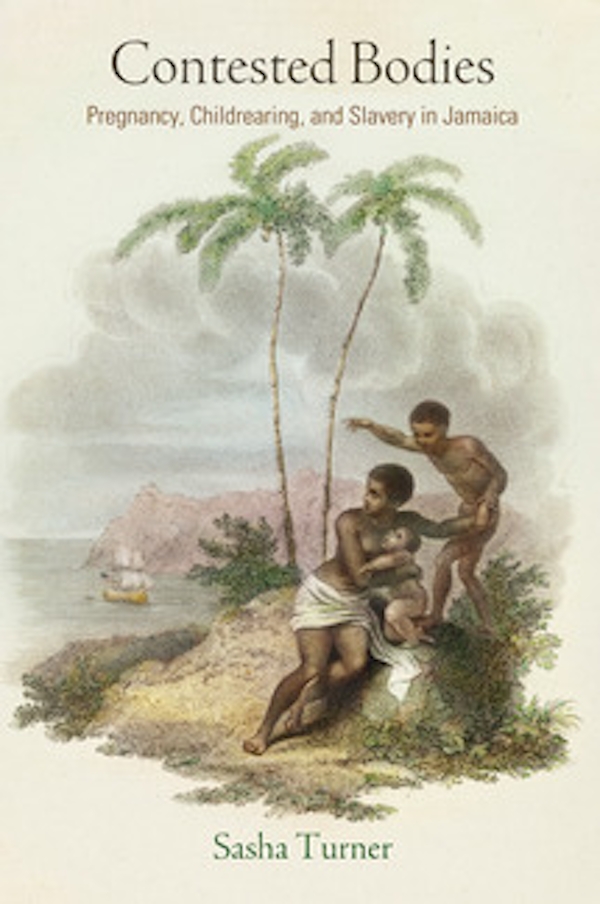Contested Bodies: Pregnancy, Childrearing, and Slavery in JamaicaPosted in Books, History, Media Archive, Monographs, Slavery, Women on 2024-08-04 21:11Z by Steven |
Contested Bodies: Pregnancy, Childrearing, and Slavery in Jamaica
University of Pennsylvania Press
June 2017
328 Pages
6.00 x 9.00 in, 10 illus.
Hardcover ISBN: 9780812249187
Paperback ISBN: 9780812224603
eBook ISBN:
Sasha Turner, Associate Professor of History
The Johns Hopkins University, Baltimore, Maryland
It is often thought that slaveholders only began to show an interest in female slaves’ reproductive health after the British government banned the importation of Africans into its West Indian colonies in 1807. However, as Sasha Turner shows in this illuminating study, for almost thirty years before the slave trade ended, Jamaican slaveholders and doctors adjusted slave women’s labor, discipline, and health care to increase birth rates and ensure that infants lived to become adult workers. Although slaves’ interests in healthy pregnancies and babies aligned with those of their masters, enslaved mothers, healers, family, and community members distrusted their owners’ medicine and benevolence. Turner contends that the social bonds and cultural practices created around reproductive health care and childbirth challenged the economic purposes slaveholders gave to birthing and raising children.
Through powerful stories that place the reader on the ground in plantation-era Jamaica, Contested Bodies reveals enslaved women’s contrasting ideas about maternity and raising children, which put them at odds not only with their owners but sometimes with abolitionists and enslaved men. Turner argues that, as the source of new labor, these women created rituals, customs, and relationships around pregnancy, childbirth, and childrearing that enabled them at times to dictate the nature and pace of their work as well as their value. Drawing on a wide range of sources—including plantation records, abolitionist treatises, legislative documents, slave narratives, runaway advertisements, proslavery literature, and planter correspondence—Contested Bodies yields a fresh account of how the end of the slave trade changed the bodily experiences of those still enslaved in Jamaica.
Contents
- Introduction. Transforming Bodies
- Chapter 1. Conceiving Moral and Industrious Subjects: Women, Children, and Abolition
- Chapter 2. “The Best Ones Who Are Fit to Breed”: The Quest for Biological Reproduction
- Chapter 3. When Workers Become Mothers, Who Works? Motherhood, Labor, and Punishment
- Chapter 4. “Buckra Doctor No Do You No Good”: Struggles over Maternal Health Care
- Chapter 5. “Dead Before the Ninth Day”: Struggles over Neonatal Care
- Chapter 6. Mothers Know Best? Maternal Authority and Children’s Survival
- Chapter 7. Raising Hardworking Adults: Labor, Punishment, and Slave Childhood
- Conclusion. Transforming Slavery
- Notes
- Sources
- Index
- Acknowledgments



